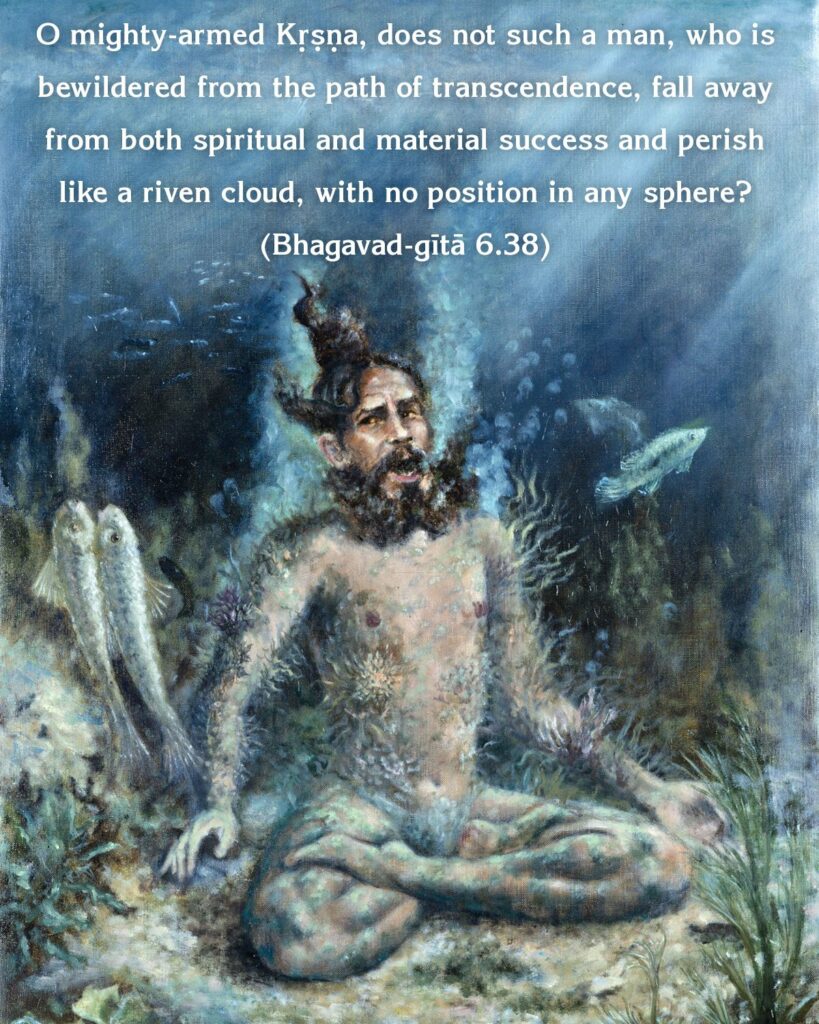कच्चिन्नोभयविभ्रष्टश्छिन्नाभ्रमिव नश्यति |
अप्रतिष्ठो महाबाहो विमूढो ब्रह्मण: पथि || 38||
kachchin nobhaya-vibhraṣhṭaśh chhinnābhram iva naśhyati
apratiṣhṭho mahā-bāho vimūḍho brahmaṇaḥ pathi
kachchit—whether; na—not; ubhaya—both; vibhraṣhṭaḥ—deviated from; chhinna—broken; abhram—cloud; iva—like; naśhyati—perishes; apratiṣhṭhaḥ—without any support; mahā-bāho—mighty-armed Krishna; vimūḍhaḥ—bewildered; brahmaṇaḥ—of God-realization; pathi—one on the path
Translation:
Does not such a person who deviates from Yog get deprived of both material and spiritual success, O mighty-armed Krishna, and perish like a broken cloud with no position in either sphere?
Commentary:
‘Fallen from both‘ – Both may be interpreted as Svarga and Moksha, or differently as Karma and Dhyana. Arjuna’s question is relevant from the standpoint of all the aspirants. They have given up all worldly things on the one side, and on the other, they have not attained Moksha. So, apparently, such a man has lost both worlds. Having given up Vedic rites and rituals, he cannot go to Svarga, and having failed in Yoga, he cannot attain Moksha.
The simile ‘rent cloud’ is appropriate, for no one can trace the existence of the cloud when it is dispersed in the sky. It is lost. Will the Yogi who dies imperfect, perish like the cloud and go to nothing? – is Arjuna’s Question.
Bhagavad Gita: Chapter 6 🔻 (47 Verses)
